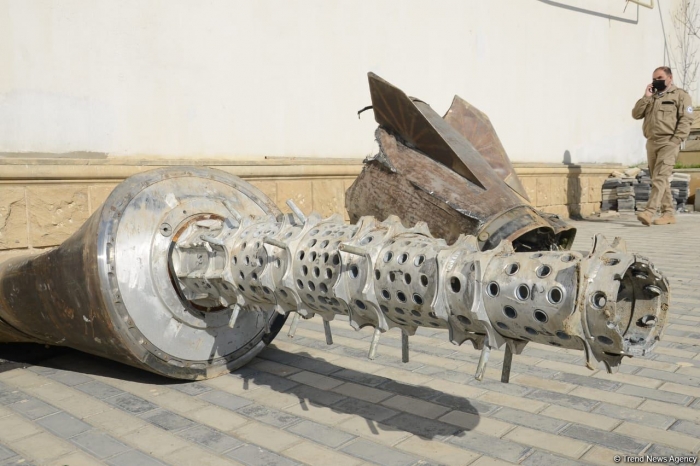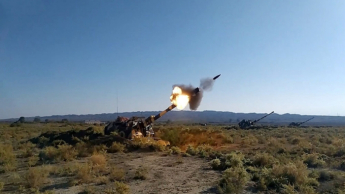Russia or Armenia launched "Iskander" missile attack on Shusha?

|

Photograph: Trend News
The situation with the discovery of Iskander missile debris on the territory of Karabakh raises many questions - to which there are currently no unambiguous answers.
The situation with the discovery of Iskander missile debris on the territory of Karabakh raises many questions - to which there are currently no unambiguous answers. Especially if the voiced assumptions about the type of ammunition, indicating that it belongs to the conventional and not the export version, are confirmed.
This casts a clear shadow on the Russian position on the issue - after all, Moscow has consistently denied the use of Iskander in the conflict in 2020. However, now there is evidence not only that the complexes were indeed used on Azerbaijani territory, but also the possible involvement of the Russian military directly in these incidents ...
Is Russia really directly related to this? In order to speak about this with confidence, there is still not enough facts and evidence. However, if you think theoretically, this version should not be discarded without proper consideration. Moscow is clearly not connected with any moral restrictions on such issues - we in Ukraine have experienced this ourselves. Also, do not forget that Russia pursues exclusively its interests in the Caucasus - and to protect them, to influence Baku in conditions when the military defeat of Armenia became inevitable and obvious, it could use different means.
It should be borne in mind that there was no official confirmation of the presence of Iskander complexes at Russian military facilities in Armenia. However, this is not one hundred percent proof that they are not there. Again, the questions remain, do we know everything about the supply of Iskander to the Armenian armed forces? Did they not receive additional weapons, with other modifications than was officially announced? If this is true, then the Russian Federation is clearly violating its obligations under international agreements that prohibit the sale of missiles of this range (in fact, the export version of Iskander with a “cut down” functionality was created in order to circumvent this limitation). Such a case deserves careful consideration at the interstate level - with the involvement of other interested parties.
And one more question, which has been especially topical recently - in what format is the Armenian-Russian military cooperation now? Receiving relatively new weapons from the Russian Federation - the same Iskanders, Su-30 aircraft - do the Armenians have real control over their use? Or, figuratively speaking, are the "launch codes" and "ignition keys" for these weapons under the full control of Russian "partners"?
Leaving for the future consideration of who nevertheless bears direct responsibility for the use of missiles in Shusha, it remains for the time being to state the very fact of the shelling (in fact, to one degree or another the Armenian side has confirmed this over the past months).
As for the legality of such actions - the use of OTRK in such a conflict - from a legal point of view, this is hardly considered illegal. In the end, each side is ready to throw the weapons at its disposal into battle in order to win - and if this is not weapons of mass destruction, then it is difficult to formally make claims.
In a moral context, the use of Iskanders really looks like an excessive measure. However, in my opinion, it is not what was used in the war that deserves more attention, but how it was used - and the Armenian side here clearly turned to terrorist methods of warfare, systematically firing at civilian targets. It is worth paying attention to the international sympathizers of Armenia - and to ponder whether such support deserves the invader who uses barbaric methods of war in order to defend the occupied territories.
The author is the senior researcher at the national Institute for Strategic Studies of Ukraine Mykola Zamikula.
(If you want to contribute and have specific expertise, please contact us at [email protected])
The Rocket and Artillery formations of the Azerbaijan Army conduct live-fire exercises in accordance with the combat training plan for 2021, the Ministry of Defense of Azerbaijan told Baku Tribune.
LAST NEWS






.jpg&h=67&w=67&zc=1&q=100)













